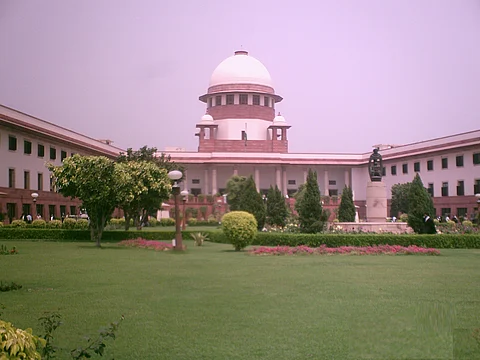

New Delhi
The top court made the observations while setting aside an order from the National Consumer Disputes Redressal Commission (NCDRC) which had held a doctor negligent.
The Supreme Court said a doctor can be liable for negligence only when there was no requisite qualification and skill, or a failure to exercise reasonable expertise during treatment.
The bench pointed out that the actionable medical negligence involves 3 constituents.
1 Duty to exercise due care.
2 Breach of duty.
3. Consequential damage.
They pointed out that a simple lack of care, an error of judgment, or an accident is not proof of negligence by the medical professional. As long as he or she follows the acceptable practice of the medical profession in conducting his or her duties.
In 1996. Dr. Sud performed the ptosis operation at PGI, Chandigarh. The complainant alleged that there was no other defect in his son's eye and both eyes had normal 6/9 equal vision. The complainant claimed that the physical deformity, ptosis, or drooping eyelid could have been cured by a minor operation, lifting the eyelid to make it the same size as the right one. However, allegedly the said surgery was done most negligently, and due to this, the eye condition further deteriorated after surgery instead of getting better. The complainant filed a consumer complaint to the State Commission claiming compensation of 15lakh for the suffering due to the doctor's negligence and further some of Rs 4.55lakh towards the cost of the treatment loss of studies.
Ptosis is the dropping of the upper eyelid due to weakened muscles, nerve damage, or skin sagging which can partially or fully obstruct vision. It can occur at birth, congenital ptosis, or develop later in life acquired ptosis and varies in severity.
PGI doctor claimed that the complainant was given proper treatment with due care. He said the recurrence of ptosis is a common complication of congenital ptosis that could have been set right by repeat surgery. He further claims that the patient was not examined after January 1997 as he was taken for treatment to Guru Nanak Eye Centre, Delhi, and Doctor Daljeet Singh Hospital, Amritsar.
After examining the records State Commission, concluded that the complainants failed to establish any negligence or carelessness. It noted that Dr. Sud was a duly qualified doctor possessing the requisite professional skill and competence to perform the surgery so neither Dr. Sud nor PGI could be held responsible for any negligence in the treatment.
The apex court opined none of the essential conditions for establishing negligence were satisfied against the doctor and the hospital. No evidence was brought on record to prove that the doctor was negligent in the care or lacking in skill that he possessed in operating the patient.
Input from various sources
Rehash/Swati Sharma
